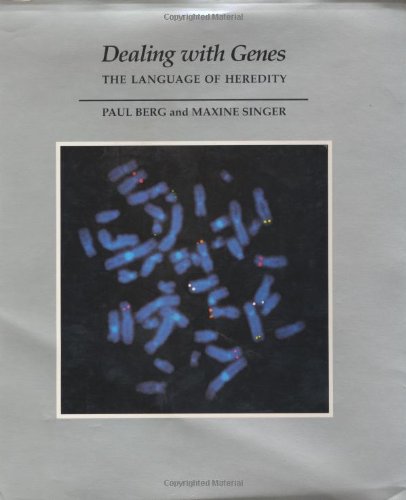Those of us who read a daily newspaper or scan a weekly magazine have grown accustomed to being told that the science of genetics influences countless aspects of our existence, from human development, health, and disease to the ecological balance of our planet. We accept this, and yet most of us have only the faintest idea of what a gene really is or how it functions. This book, then, is a primer on modern genetics, and its aim is to teach any interested general reader all he or she needs to know about how genes work - and about how a detailed knowledge of their workings can be applied to some of the most pressing problems of our time.
Written by two world-renowned researchers in molecular biology and illustrated with uncommon clarity and precision, Dealing with Genes will satisfy the interest of general readers, including those who have little formal background in biology. It will also serve admirably as an authoritative text for students taking nonmajors courses in biology, genetics, molecular biology, biotechnology, and related disciplines.
Maxine Singer is the President of the Carnegie Institution of Washington and Scientist Emeritus at the NIH where she conducts research on transposable elements in the human genome. She is a member of the US National Academy of Sciences and its Institute of Medicine, and was awarded the National Medal of Science in 1992.
Paul Berg is Willson Professor of Biochemistry and Director of the Beckman Center for Molecular and Genetic Medicine, Stanford University School of Medicine. He is a member of the US National Academy of Sciences and its Institute of Medicine. He was awarded the Nobel Prize in Chemistry in 1980, and received the National Medal of Science in 1983.
![]()
